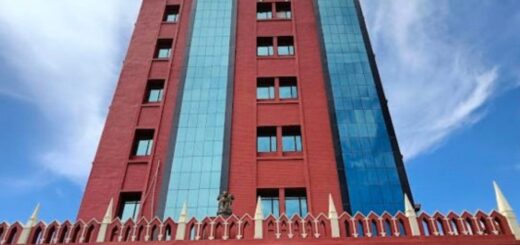Bidders in the tender process only have the right to equal and fair treatment when their competitive bids are evaluated, according to the Supreme Court.

The Supreme Court has ruled that bidders in the tender process only have the right to fair treatment and equality during the evaluation of bids. The Court accepted the appeal from Indore Vikas Praadhikaran (IDA/Appellant) and overturned the Madhya Pradesh High Court’s decision, which had ordered land to be given to Shri Humad Jain Samaj Trust (Trust/Respondent), the highest bidder in a public auction. Justices Bela M. Trivedi and Satish Chandra Sharma noted that without an allotment letter and acceptance of the highest bid, the Trust could not receive any relief since there was no finalized contract. They stated that the Tender Evaluation Committee’s choice to seek higher revenues should not have been challenged as it was by the Madhya Pradesh High Court. The Court emphasized that bidders do not have rights beyond fair treatment and cannot demand further negotiations, as seen in this case.
Senior Advocate Balbir Singh represented the Appellants, while AOR Rakesh Dahiya represented the Respondents. The IDA started a tender process through a Notice Inviting Tender (NIT) for leasing a plot of land. The Trust was the highest bidder. However, the IDA’s Tender Committee later found that property tax arrears of Rs. 1.25 crores had not been included in the base price. The Committee suggested rejecting all bids and issuing a new NIT with an updated reserve price, which the IDA Board approved. The Trust was notified of the rejection of its bid, and its earnest money was returned. A second NIT was issued, but the Respondent chose not to participate.
The Respondent, unhappy with the second NIT, filed a Petition against the IDA’s decision. The High Court’s Single Bench dismissed the Petition, stating that the highest bidder did not have a guaranteed right to the land. However, the Division Bench overturned this decision and instructed the IDA to allocate the land to the Respondent if they agreed to the new rate. The Supreme Court ruled that without an allotment letter and acceptance of the highest bid, no relief could be granted to the Respondent since there was no finalized contract. The Court noted that the Tender Evaluation Committee’s choice to increase revenue should not have been challenged as done by the Division Bench of the Madhya Pradesh High Court in Indore.
The Court referenced its earlier ruling in Haryana Urban Development Authority v. Orchid Infrastructure Developers Pvt. Ltd. (2017), which stated that bidders in the tender process only have the right to fair treatment and equality during the evaluation of bids. Bidders cannot contest the tender’s terms except on these grounds, as the terms are part of the contract. No bidder has the right to demand further negotiations unless the tender notice explicitly allows for it.
The Court stated, “The terms of NIT, especially condition No. 6, give the IDA the authority to accept or reject any bids. In this case, the bid was rejected for valid reasons, so the order from the Division Bench of the High Court of Madhya Pradesh is overturned.” As a result, the Supreme Court approved the Appeal.
Cause Title: Indore Vikas Praadhikaran (IDA) & Anr. v. Shri Humud Jain Samaj Trust & Anr.
Appearance:
Appellants: Senior Advocate Balbir Singh; AOR Vanshaja Shukla
Respondents: AOR Rakesh Dahiya and Pashupathi Nath Razdan









